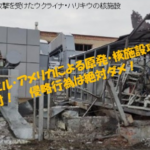12月21日『琉球新報』3面に掲載されたブログ運営者の評論を紹介します。ガバン・マコーマック氏による英訳を下に記します。Here is an article printed in the December 21 edition of Okinawan newspaper Ryukyu Shimpo. Below is an English translation by Gavan McCormack.
埋立承認取消の取り消しは沖縄県民の新基地反対への民意を受けた行動とは言えません。取消を取り消さなくとも、最高裁の判決に従っていないということはありません。この判決は違法確認だけであり、埋立承認取消の取り消しを命じていないのですから。だから判決の後、取り消すとしたらそれは判決を受けてということではなく、翁長知事の政治的意思によるものということになります。
取り消さないことは立派に判決に従っているのです。翁長知事には埋め立て承認取消の取消を思い留まってほしいと思います。
 詳しくはこちらの投稿も見てください。
詳しくはこちらの投稿も見てください。
辺野古埋め立て「違法確認訴訟」最高裁で県が敗訴しても知事は判決を理由に埋立承認取消を取り消すことはできません/させてはいけません―元裁判官仲宗根勇氏との問答
Defeat in the Supreme Court does not extinguish the [Henoko] Reclamation License Cancellation
Satoko Oka Norimatsu
Translated by Gavan McCormack
In the case of the state of Japan versus Okinawa prefecture, in which the Japanese state sought a ruling that the Governor had acted illegally in canceling the order for cancelation of the license for reclamation of Henoko, the Supreme Court has now ruled in favor of the State of Japan.
It is a cause for deep concern that this has come to be widely understood as meaning that the Governor must now cancel his cancelation of the reclamation license, whereupon, as a necessary consequence, the state can resume construction. Even if the state is successful in its suit for a declaration of breach of the law, it cannot resume work. The judgment is simply a recognition that Governor Onaga’s cancelation of the reclamation license is, literally, a breach of the law. It would convey no legal duty on the part of the Governor to approve reclamation.
For the state to resume reclamation work, it would have to launch a new, proxy execution suit. It could only resume work following a Supreme Court proxy execution order enabling the state to act in lieu of the prefecture.
It seems that many people take the view that Governor Onaga, “obeying” the ruling of the suit for declaration of breach of the law, must cancel his cancelation of reclamation license under the terms of Clause 9 of the March 4 Conciliation Agreement. But that is not the case. Clauses 5 and 6 of the Conciliation agreement ceased to have effect once the State-Local Government Disputes Resolution Committee determined on June 17 that it would not rule on the question of the legality of the state’s rectification order. And since the prefecture did not launch any suit for cancellation of the rectification order based on either clause 5 (in case of there being no breach of the law) or clause 6 (in case of a determination of breach of the law), clause 9, which is predicated on the existence of clauses 5 and 6, has no scope for effect, and so naturally it [clause 9] also becomes void. Because the suit in which the prefecture has been defeated was a suit for confirmation of an illegality, not a suit for cancellation of a rectification order, the clause 9 “obey the judgment” is irrelevant.
Furthermore, it has been reported that Governor Onaga, in discussions with the state on July 21, agreed to “obey the judgment” in the suit for confirmation of breach of the law. But, as noted above, a confirmed ruling of breach of the law is just that–a recognition of breach of the law. It does not oblige the Governor to cancel his cancellation order and it cannot extinguish the order cancelling the reclamation license in order to “obey.”
And accordingly if, following this judgment, the Governor were to cancel the cancellation order, it would simply mean that he was acting on his own political judgment. If he were to do that, it would be a gross betrayal of the people of the prefecture who elected him on the platform to oppose base construction.
This is a translation of Norimatsu’s article “Shikisha hyoron – Ken ni hoteki gimu shojizu,” inRyukyu Shimpo, 21 December 2016.
Satoko Oka Norimatsu and Gavan McCormack are editors of Asia-Pacific Journal: Japan Focus.
初出:「ピースフィロソフィー」2016.12.23より許可を得て転載
http://peacephilosophy.blogspot.jp/2016/12/henoko-lawsuit-supreme-court-ruling.html
〈記事出典コード〉サイトちきゅう座 https://chikyuza.net/
〔eye3827:161224〕






